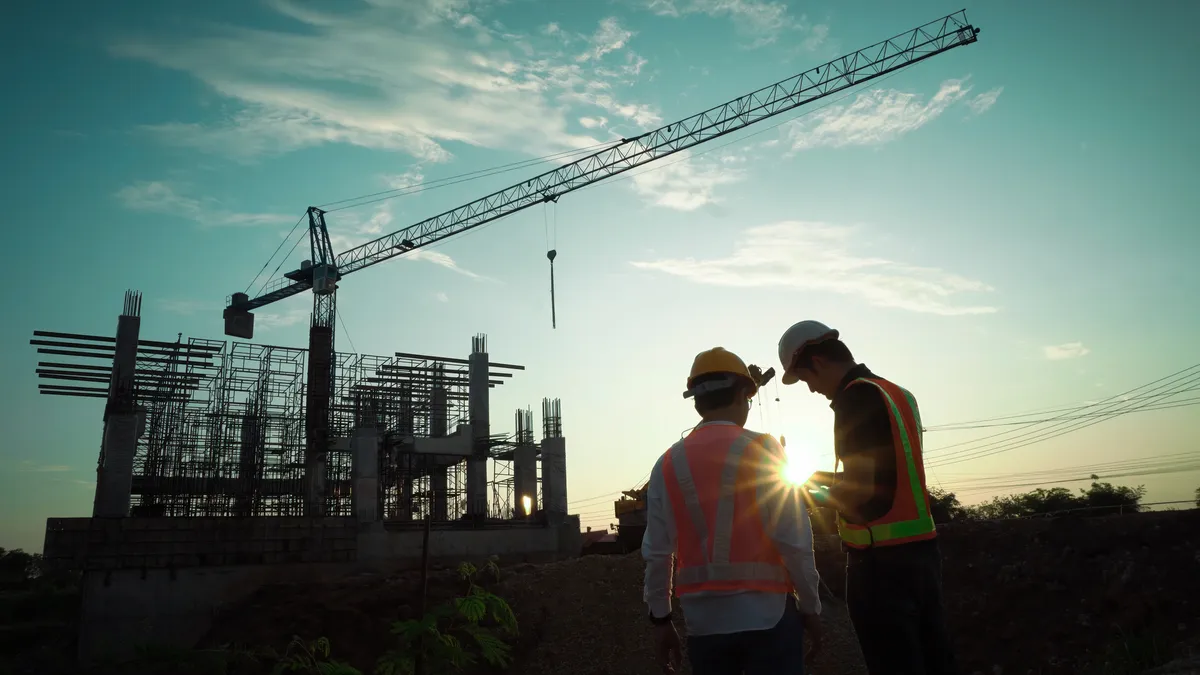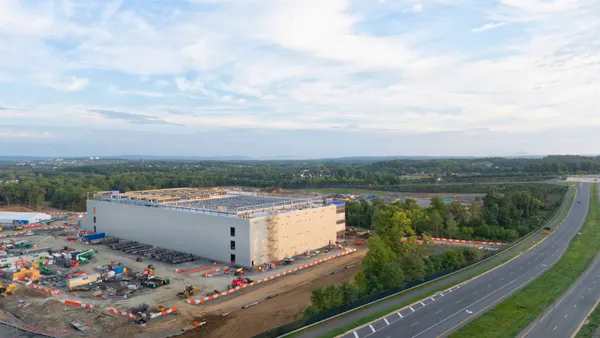Matt Verderamo is a consultant at Well Built Construction Consulting, a Baltimore-based firm that delivers strategic consulting, facilitation services and peer roundtables for construction executives. Opinions are the author’s own.
It’s no secret: Low-bid procurement methods have been a problem in construction for decades.
In fact, you’ve probably seen frustrated construction pros talking about it on LinkedIn — and how they wish the construction industry would change but never will. These people are downright exhausted from the grind of bidding work and rarely getting the job unless they are low.
I totally understand their frustration but I’ve got to admit that I see the situation from a significantly more positive perspective. As a sub or general contractor, there is absolutely an opportunity to escape low-bid procurement.

Just look at the top contractors in the country. Do you think firms like Turner, Bechtel, Kiewit, DPR, Hensel Phelps and more are winning all their work because they are low? Further, do you believe that they are only awarding low-bid subcontractors?
Good news: It's not the case.
Sure, there are times when clients must award the low bidder, and frankly it can make a lot of sense to do so, but it’s not the only way projects are won. There are ways to escape the low-bid trap.
Why most contractors can’t escape
Falling into the low-bid trap can happen for a number of reasons. First, many contractors are stuck because they simply don’t believe it is possible to escape. As I mentioned with the frustrated contractors on LinkedIn, some companies believe there is not a better way to win work, and so they give up trying.
They keep bidding everything and hoping for the best, but don’t take action toward escaping. This is the most common cause and also the easiest to overcome. You must believe that your company can change the status quo and start negotiating work, otherwise you never will.
Second, contractors get stuck because they are not actually better than their competition. For example, I hear all the time that, “We are better than our competition because we have experienced people and we build with high quality.”
Yes, experience and quality matter, but they are not enough to negotiate work. Why? Because every contractor says they have experienced staff who build with high-quality. So, while it may seem like a differentiator to you, your competition is saying the exact same thing. And if the buyer views you as the same as your competition, then they base their selection on price.
So, you’ve got to do more to differentiate than simply say you are better. You have to actually be better and get good at selling it.
Third, some contractors get stuck because they must keep their workers busy. If you have a bunch of superintendents on staff with no job to send them to in a month, then what are you going to do? If you’re smart, you’re going to bid projects cheap so that you can cover the overhead associated with their salaries. While this can be a sensible business decision, it can also act like quicksand for your business.
If you are always busy trying to keep jobs running so you have a place to put your team, then it’s hard to find time to develop relationships, do great work and win work based on value instead of price. This is one of the hardest traps to escape, but it is possible.
Primarily, you do it by continuing to scrape by and win low-bid projects, while simultaneously holding high-quality sales meetings with potential negotiated clients. In other words, you continue to chase the low-bid work while positioning yourself to win higher-margin negotiated work.
Eventually, you build up enough negotiated clients to say “no” to the low-bid opportunities in your pipeline.
Last, I see some unbelievably talented contractors who really are better and different than their competition get stuck because they bid way too often. They chase every job that comes through the door, whether they are a good fit or not.
If you’re always bidding, you’re probably burning out your team, and get so focused on bidding that you don’t spend enough time selling and winning. At the end of the day, your goal should never be to bid; it should be to win! Don’t lose sight of that.
Escaping the low-bid trap
Here are a few questions you should ask yourself to get started:
- Are we bidding too often?
- What do we do that is better and different than our competition?
- Do we have a solid go/no-go that makes it clear what projects are in our sweet spot?
- What relationship development efforts do we have going on? Do we have anyone (or multiple people) whose responsibility is to develop relationships?
- Do we have a sales system? Or just a bidding system?
If I was starting a subcontracting or general contracting business today, here are a few key actions I would take:
Clarify an ideal client profile: Who do we love to work for? And why? How do they act? How do they treat our team? Conversely, what kinds of clients do we want to avoid? Without absolute clarity on who you want to chase and why, it is hard to find ideal clients who will believe you can add value on their projects. Don’t just bid to anyone.
Clarify an ideal project profile: What’s our bread and butter? Where is the intersection between projects we are great at building and the ones where we typically make the most money? Stop chasing everything under the sun and start getting clear on what your team is great at. Bad projects are a distraction from the great work that is out there for you.
Develop a go/no-go: If you get your ideal client and ideal project right, then you should use that information to develop a go/no-go criteria. You will be shocked by how clarifying it is to start saying “yes” to the right projects and “no” to the wrong ones.
Create a culture of business development: Relationships matter for negotiating work, and most contractors don’t do nearly enough business development. The most successful contractors create a culture where BD is everyone’s job. You’d be amazed by the benefit of having everyone on your team consciously build relationships with your customers and prospective customers. Even your supers and PMs can contribute. Get everyone involved.
Train estimating staff in basic selling principles: “Sales” seems to be a bad word in construction, and I just don’t get that. I’m not saying you need to turn your estimating staff into salespeople, but you should teach them how to use leverage, negotiate, run high-quality sales meetings and use the power of influence to get more projects awarded at your target number. You’d be shocked by how your hit rate changes just because the team starts to see the big picture — and focuses on winning, not bidding.


































